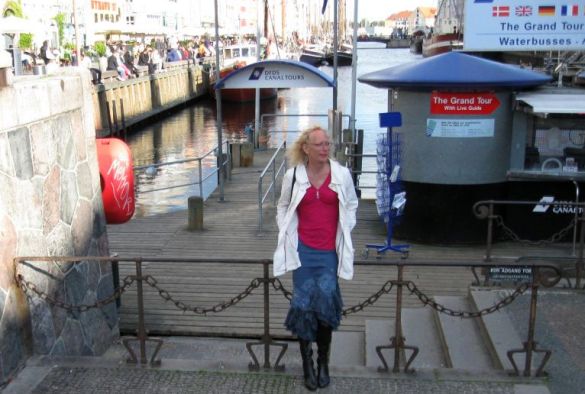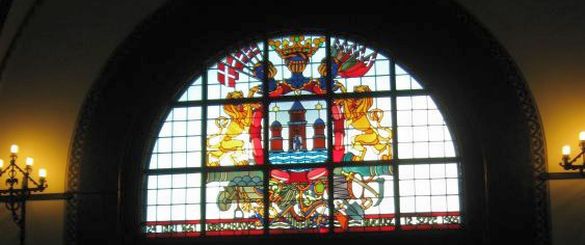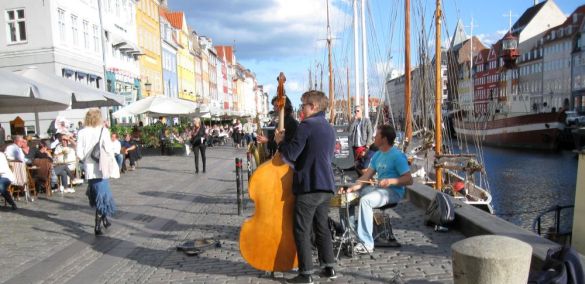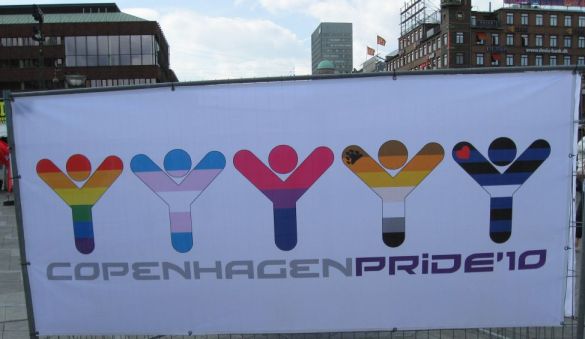“You are mentally ill!” That is the diagnosis awaiting transgenders. Born in the wrong body is – according to the WHO – a mental disorder. That’s also the case in Denmark, once associated with sexual freedom and liberal attitudes toward minorities, the proof of which was the same-sex Partnership Act of 1989. Other countries took the lead after that.
It appears incomprehensible to most of us that nature could mix up sex identities and the bodies they belong to. Sex-change operation is what you think of first – a long and complicated process, speeded up in certain countries for those who can pay. Sex identity seems to be hidden in the brain, surgery can bring physical attributes in line with that identity, civil registration number and passport as well.
Malene was around 30 when she took the plunge into the women’s world. She had gradually been coming out among printer colleagues teasing her with female nicknames. Malene is middle-aged now, a full-time woman and the father of grown-up children. She is an organizer, quick and self-confident, her straightforwardness reflected in a strong voice always on the verge of laughter.
There she is – on her bike, her blond curls dancing in the wind revealing a receding hairline, she is slim and sporty, slightly late, so many things to do; no photo equipment in her basket today. We have a date on the City Hall Square in Copenhagen, these days a building site to become the home of a new metro station. Walking is good enough for us – down Stroget, claimed to be the longest walking street in the world.
A great help
First a sidestep though, into the beautiful City Hall. I want to show Malene the Wedding Room, where partnerships are forged. The guards study us with suspicion, unaware that we are actually out testing Danish tolerance. Just overworked, Malene seems to think, as they return to sweeping rice off the floor.
She was here ten days ago, where the remaining part of the Square was covered with white pavilions, one of them belonging to the T-Group, T for Trans, part of LGBT Denmark, the national association for lesbians, gays, bisexuals and transgenders, founded 1948. It had a name change few years ago to reflect the inclusion of bisexuals and transgenders. From that moment on, Malene was not only a member but a resourceful volunteer supporting those with a T.
After printers were out, Malene switched to computer science within the public sector. For the present, organizational work and filming keep her busy. During this year’s after-Pride party on this very spot, she presented Maria, a 20-year old blond in high heels. She explained with a smile that she got a sex-change two years ago and urged people to think of her when their minds got mixed-up with prejudice and tall stories, whereupon she zipped down her dress and walked out in a pink bikini like a beauty queen.
Living conditions among the LGBT were investigated in depth two years ago, revealing that two out of three in the T-segment had never revealed their true identity to a living soul. With Malene’s short video of Maria on the Internet, the way into the open is paved a bit further. We will now use Stroget as a testing ground to measure the level of acceptance. Stroget is a place you walk to see people and to be seen. If you are down and out or different, Stroget is not necessarily the best place to be.
Walk and see
It’s a busy afternoon in September, sunny and warm. Malene lights a cigarette, throws her shoulder bag into position, we join the slow wave of people. They stare more than I could dream of – interpreting reactions is guesswork, the only clear thing is that none of them shows approval. Children giggle, old people turn their necks to emphasize their dissociation, tourists turn around several times to demonstrate that such a thing is unheard of in their own country.
“It’s my face and voice”, says Malene. She knows the reactions by heart, as she often walks this way to the Association’s office midway on Stroget. She keeps herself occupied through constant smoking and explaining to me about categories – drags are entertainers, transvestites get an occasional kick out of dressing and acting like the opposite sex, whereas transgenders – some prefer the term transsexuals – struggle with a sex identity incompatible with their bodies.
Malene’s strong hands with red nails fly up and down, like a weapon of defense, despite all the smiles bestowed on her. There are smiles of surprise, smiles of reprehension, smiles of feeling better, a seldom smile of amusement, perhaps mistakenly amused that we live in a liberal and tolerant society. Smiles of confusion suggest sex fantasies, who goes to bed with whom. Transgenders can actually be hetero or homo. “Just like the rest of the population”, clarifies Malene.
On every postcard stand, the Little Mermaid pops up, a national jewel. With her spectacular physical mix, she could have been an ambassador for transgenders – with the purpose of creating openness about the variations caused by Nature. Another jewel, at least so regarded among tourists – is the Free Town of Christiania, where alternative living and an open attitude toward minorities have always been part of the setup. Its Gay House is a strong base for culture activities.
In the skies
High up in the air, an SAS plane crosses diagonally, creating associations in Malene, “Love is in the air!” She has already seen the ads seeking same-sex couples to be married in the air on December 6. It’s a competition, whose winning couple will be spoiled with a wedding party in the air and honeymoon on both sides of the Atlantic, a new twist in airline promotion. The detailed rules do not explicitly exclude transgender, so the SAS and the world may be in for a transatlantic surprise.
Malene and I land in Nyhavn, the picturesque old harbor right beyond Stroget. A band of three plays jazz at the waterfront, the other side of the street is covered with busy cafes. Malene walks down the street alone, another lady comes the other way. All attention is on Malene – bored musicians stretch their necks, tourists at the tables raise their heads, their hands serving as sunshades.
Why is it that educated people like the Danes, and most tourists too, stare at the transgenders as if they had fallen off the Moon – very likely because of ignorance. An enormous information task seems to await Malene and her kind. However, transgenders in large numbers will come out if the overall atmosphere grows softer, and become the object of admiration instead of ridicule.
Photos by Terje Raa and Malene Andreasen



